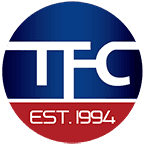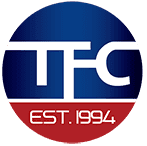Did you know that 80% of Americans have some sort of debt? While the majority of them have outstanding student loans, the rest may have other loans to help fund milestones in their lives.
Whether you’ve gotten by without taking on any debt or have borrowed money before, perhaps you’ve been recently wondering about taking a loan out. This would help immensely with certain aspects of your life, after all.
Before you search “consumer loans near me,” first read this guide. We’ll tell you everything you need to know about consumer loans so you know which ones are right for you.
What Is a Consumer Loan?
“Consumer loan” is a blanket term for any type of borrowing that consumers use to fund important things in their lives. Considering all of us are consumers, this is a loan that basically anyone can get, given that they have a good enough credit score.
What’s great is in most cases, you can use the money to finance anything you wish. All that differs are the terms and conditions applied to the particular loan you get.
FAQs About Consumer Loans Near Me
What Are Consumer Loans?
Consumer loans are funds borrowed by individuals for personal use, such as buying a car, covering medical expenses, or home improvements. These loans typically involve repayment with interest over a specified period.
How Can I Find Consumer Loans Near Me?
- Local Banks and Credit Unions: Visit nearby branches to explore loan options and speak with loan officers.
- Online Lenders: Utilize internet resources to compare loan offers and apply for loans directly online.
- Loan Comparison Websites: Use platforms that aggregate loan options from various lenders to find competitive rates and terms.
What Types of Consumer Loans Are Available Near Me?
- Personal Loans: Used for various personal expenses with fixed monthly payments.
- Auto Loans: Financing options for purchasing new or used vehicles.
- Home Improvement Loans: Loans tailored for home repairs or renovations.
How Do I Choose the Right Consumer Loan?
Consider factors such as interest rates, repayment terms, fees, and loan amount flexibility. Compare multiple offers and choose a loan that fits your financial needs and budget.
What Documents Do I Need to Apply for a Consumer Loan?
Typically, lenders require proof of income (pay stubs or tax returns), identification (driver’s license or passport), and possibly bank statements or credit history.
Quote from Daniel Joelson, Consumer Finance Expert:
“Finding the right consumer loan involves comparing rates, understanding terms, and ensuring it fits your financial goals. Always borrow responsibly and choose a loan that enhances your financial well-being.”
With consumer loans, there are 2 types: secured and unsecured. Keep reading to find out more about each.

Secured
With a secured loan, you put down assets as collateral. This gives the lender better security, which means a few more benefits for you.
For example, this means you can usually borrow a larger amount. In addition, you’ll enjoy lower interest rates and even a longer timeframe to pay your loan back.
If you’re unable to repay your debt, then the lender takes your collateral and uses it to get the amount you weren’t able to repay in cash.
As you can see, secured consumer loans come with the risk of losing something you highly value. However, if you’re confident that you can repay the loan in time, then it’s a good choice to consider.
Unsecured
As you may have guessed, unsecured consumer loans are ones you can get without putting down collateral. Because the lender doesn’t get an extra bit of security, this type of loan comes with some disadvantages.
With unsecured loans, you can’t borrow as much. Plus, the interest rates are higher and you’ll have a shorter repayment period when compared with secured loans.
Because there’s no collateral involved, institutions will usually require that you have a solid credit score to approve you for one of these loans. As a result, unsecured consumer loans are more difficult to get approval for than secured ones.
Types of Consumer Loans
Considering that “consumer loan” is a blanket term to describe different types of loans an individual can get, it stands to reason that there are a few out there that suit various purposes. Let’s take a look at the types available.
Mortgage
If you’re considering owning instead of renting, then you’ll most likely have to take out a mortgage to fund the purchase. Many Americans take out mortgages, as it’s very rare that someone is able to pay for an entire house with just cash alone. In fact, for total household debt, mortgages take up 71%.
This is one of the loans with the longest terms, as you can take anywhere from 10 to over 30 years to pay off your mortgage. Interest rates are also very low when compared with all other types of consumer loans.
Student Loan
This is another type of loan many consumers have, as pursuing higher education can cost a pretty penny. Even with the help of loved ones, grants, and scholarships, you most likely need to take out some sort of student loan to finance your entire time at university.
These are a special type of consumer loan since you don’t usually have to start paying them back in the beginning. Instead, the payments are deferred until you finish your education.
Personal Loan
Personal loans are a type of unsecured loan. You can use one for anything, from renovating your house to funding your honeymoon trip.
Repayment periods are usually relatively short, ranging from 18 to 60 months. Interest rates are also a little higher than other loans because personal loans are unsecured.
Credit Cards
Credit cards are also a very popular consumer loan people take out. Interest rates are relatively high, but you can purchase almost anything instantly by swiping the card.
So long as you pay off your balance every month, you’ll be able to avoid paying the high-interest rates. Plus, many companies offer incentives and rewards for using your credit card.
Auto Title Loan
An auto title loan is a type of secured loan. If you have a vehicle (such as a car, truck, or RV), plus a lower credit score, then you can consider applying for this type of loan.
How this works is you put your car title up as collateral. Interest rates will be a little higher and the repayment period will be shorter, but it’ll be much easier to get approval.
Once you’ve repaid the loan in full, you’ll get your auto title back. Otherwise, if you default, the lender can use the title to sell your vehicle and get cash for it.
How to Find Consumer Loans Near Me
After hearing all about these loans, do you now want to search for consumer loans? In that case, it’s very easy!
Most people will type in “consumer loans near me” into a search engine, so we suggest you start there. Then, take a look at your results. Don’t just apply on the first site you see; make sure you explore your options.
For one, you want to make sure you’re applying with a legitimate and reputable company. In addition, you want to get the best rates and terms possible.
By taking your time to browse your options, make a shortlist, and eliminate choices until you’re happy with a single site, you’ll ensure that you get the best consumer loan for your personal situation.
Apply for a Consumer Loan Now
Now you know all about the types of consumer loans out there. Plus, you know how to find lenders near you so you can get the best rates and terms possible.
The next step is to actually apply for the loan. That way, you can finally get started on that next milestone of yours!
Are you now ready to search for “consumer loans near me”? Then apply for one with us now! you’ll get approval within minutes.
This article was brought to you by TFC Title Loans, we try to bring to you the most informative information. If you are interested in getting a title loan near me, we are able to help you with our large referral network.
We will help you to get the most money by using the equity that you have in your vehicle, the application is fast and we can provide you with same-day funding.
All of our referral partners are in compliance with the CFPB. We will help you to get the money that you need but from a trusted and reliable title lender.


